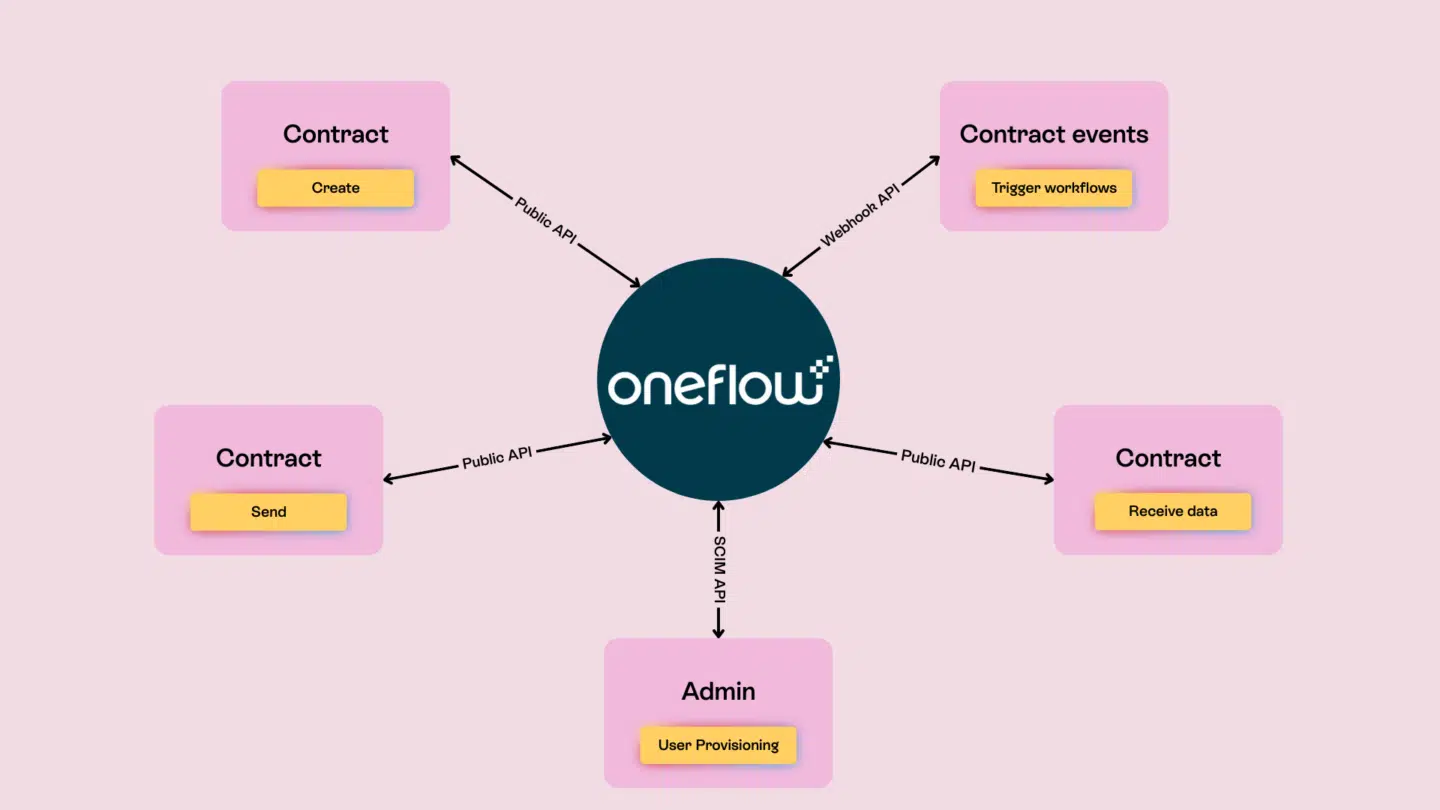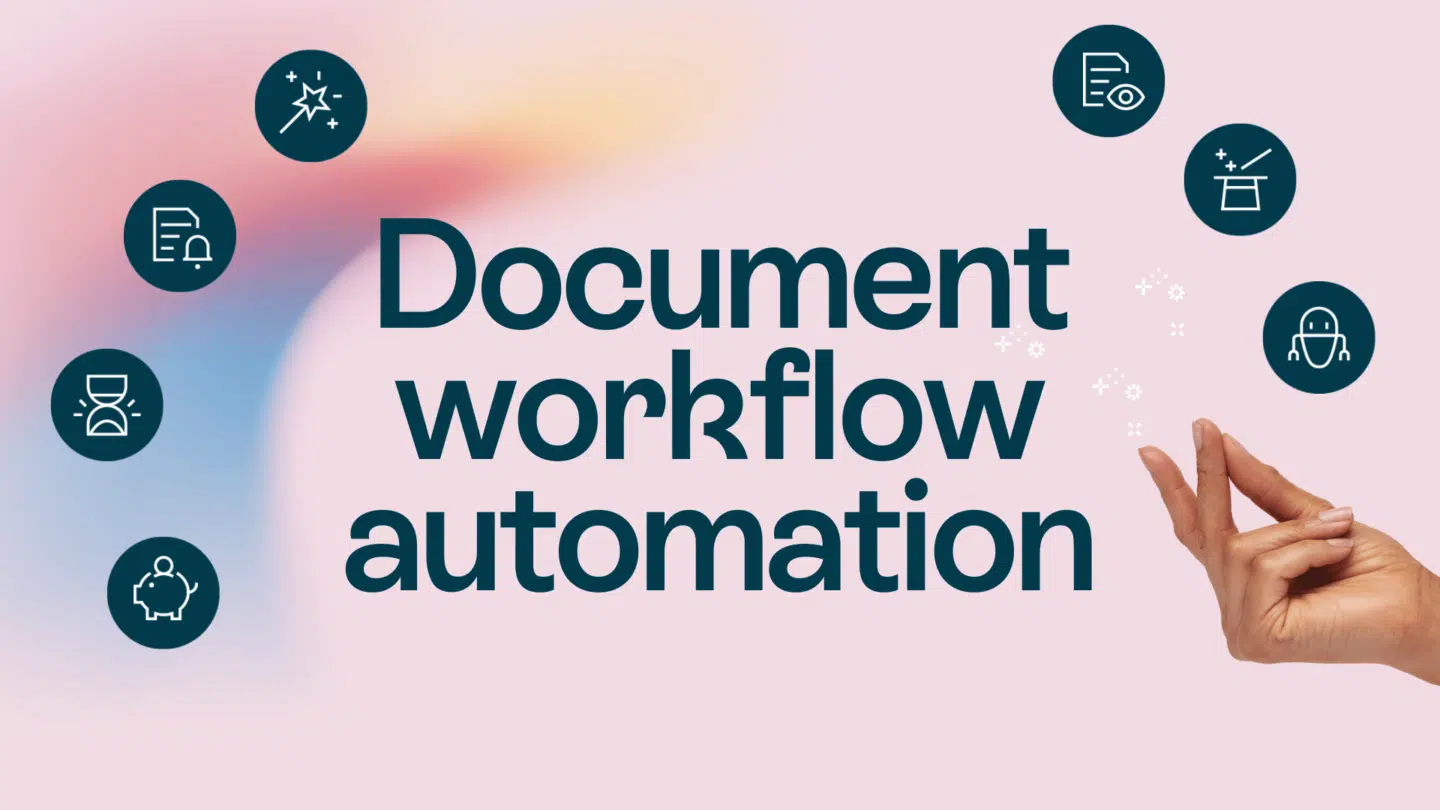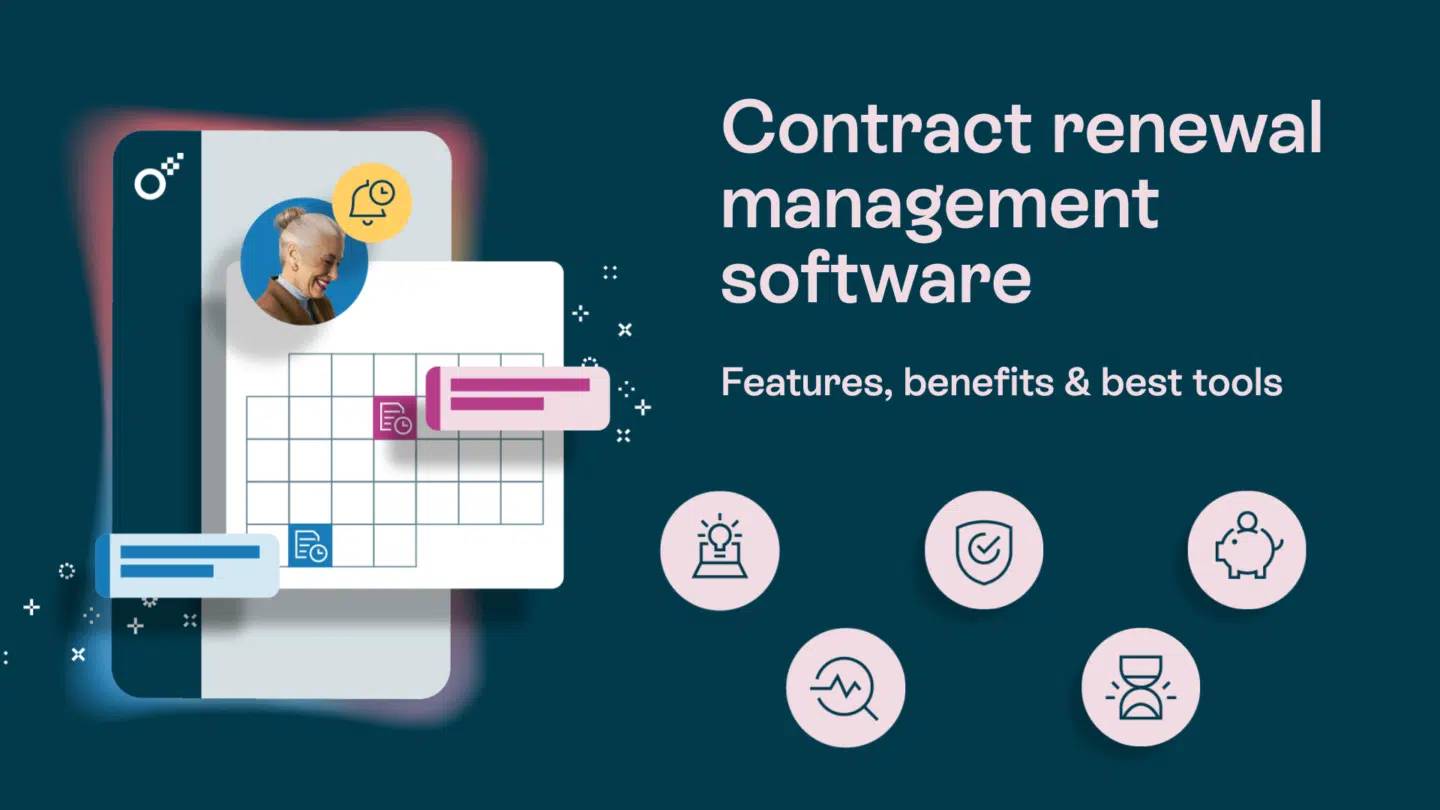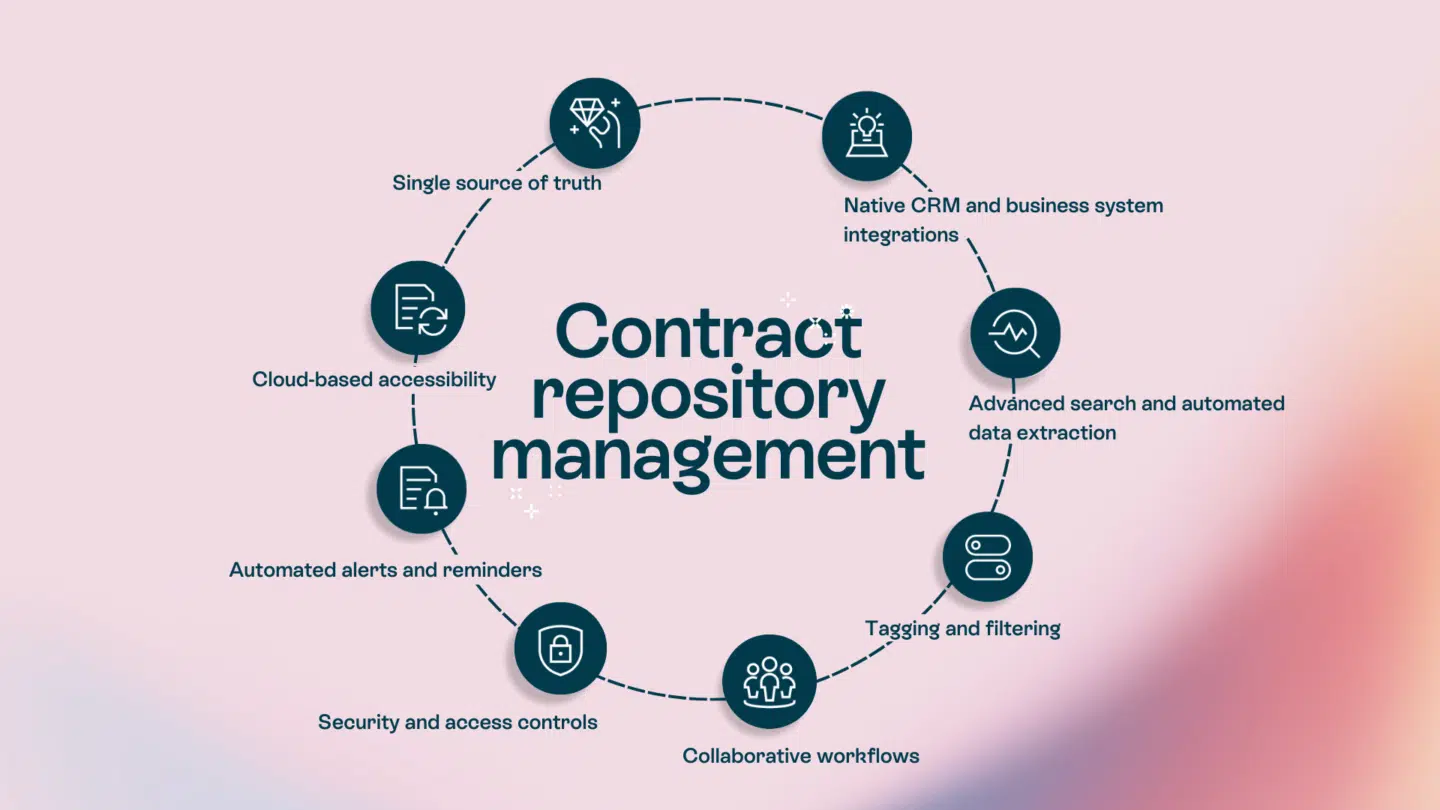Contract management strategies are getting more noted nowadays, a contract management strategy is a crucial aspect of any business-to-business (B2B) operation. It encompasses the creation, negotiation, execution, and administration of contracts with customers, suppliers, and partners. A well-executed contract management process can guarantee that both parties are aware of their obligations and responsibilities, reduce the possibility of disputes and breaches, and maximize the potential for success.
In this article, we’ll cover:
- Have one contract archive
- Standardise your contract management strategy
- Automate your contract management strategy
- Build in risk management
- Collaboration and communication

Read also: Before you sign: What should great contract management software actually do pre-sign?
1. Winning contract management strategies: Have one contract archive
Having access to all relevant contract information is the backbone of effective contract management. This can be achieved by establishing a single, centralized contract archive that contains all contracts signed by the business along with associated information, such as contract terms, parties involved, and renewal dates.
Having one archive makes it easier for all stakeholders to access the information they need without having to search through multiple sources, or risking not being able to find something crucial.
2. Standardize your contract management strategy
Standardizing your contract management strategy and templates can improve consistency and accuracy, as well as reduce the time and resources required for contract creation and review. B2B businesses can standardize their contract process by creating contract templates using contract management software.
This standardization helps ensure that all contracts are consistent in terms of language, format, and content, reducing the likelihood of confusion, or even disputes, arising.

3. Automate your contract management strategy
Automating your contract management strategy can significantly improve efficiency and accuracy. Automated contract generation minimizes the risk of errors and saves time and resources.
Automating the signing part ensures that contracts are executed correctly and on time, while automated renewal processes ensure that contracts are renewed in a timely and efficient manner, reducing the risk of a contract accidentally lapsing.
Read also: Discover the Best Contract Management Tools – Our Top 10 Picks!

4. Build in risk management
Risk management is a critical aspect of contract management as it helps reduce some major contract risks and helps protect the business in the event of disputes or data breaches.
B2B businesses should integrate a systematic approach to risk management into their contract management process, including the identification and assessment of risks, some clear and concise risk management strategies, and ongoing monitoring and reporting of risk status. This helps ensure that the business is aware of potential risks and is prepared to manage them effectively.
5. Collaboration and communication
Effective communication and collaboration between all relevant stakeholders, especially legal, are essential to any successful content management strategy. This includes regular meetings to discuss contract statuses and updates, as well as the sharing of information and best practices. Good communication ensures that all parties are aware of their obligations and responsibilities, reducing the risk of any possible disputes or breaches.
Effective collaboration helps ensure that contracts are managed effectively and that all stakeholders are working together towards a common goal.
Read also: 5 benefits of contract automation that will boost your business

The key takeaways
Contract management is a continuous process that requires a well-structured and systematic approach. The five strategies we’ve looked at here can help B2B businesses streamline their contract management strategy. By implementing these strategies, B2B businesses can reduce the risk of disputes and breaches, improve efficiency and accuracy, and maximize their potential for success. After all, if your sales team is less bogged down in admin work, they have more time to sell.
Moreover, it’s important to remember that contracts are not a one-time event. As business needs evolve, contracts will need to be reviewed and updated to reflect these changes. Regular contract audits can identify areas where changes are necessary and ensure that contracts remain relevant, up-to-date and up-to-code.
Effective contract management requires ongoing attention and commitment, but the benefits of a well-executed strategy make it a valuable investment for any B2B business.







